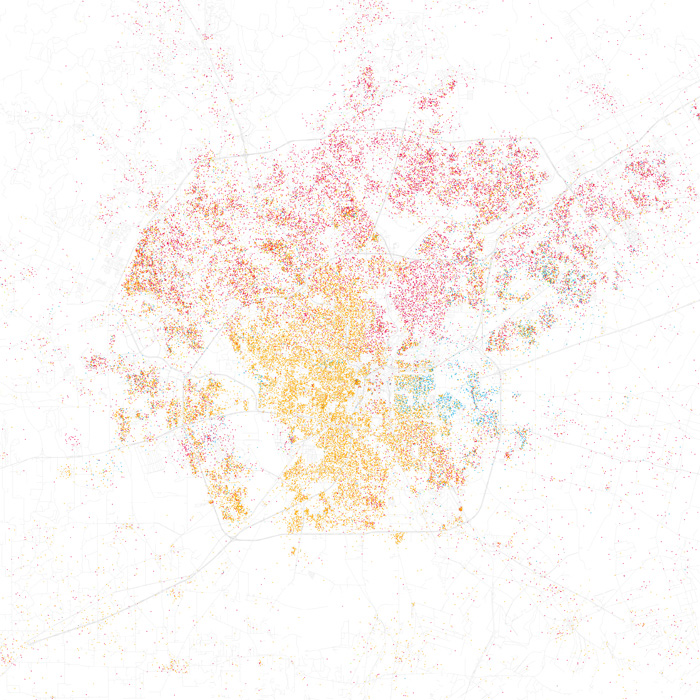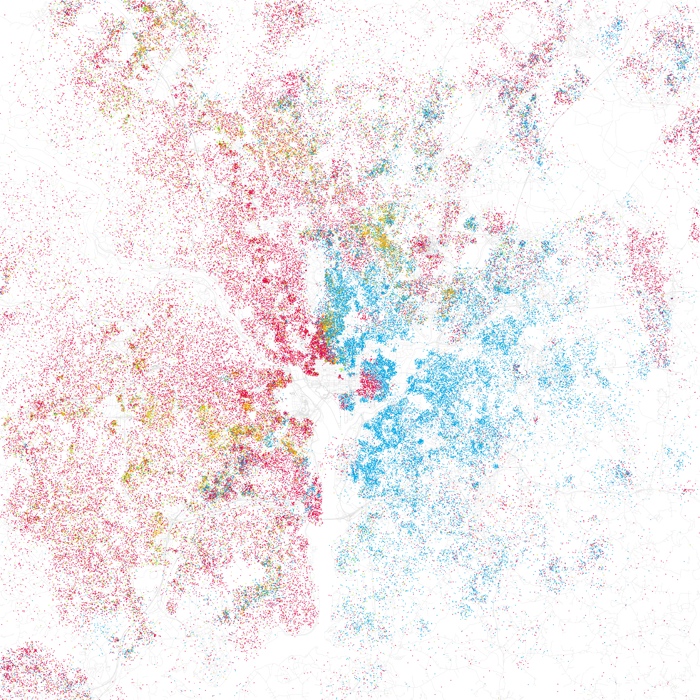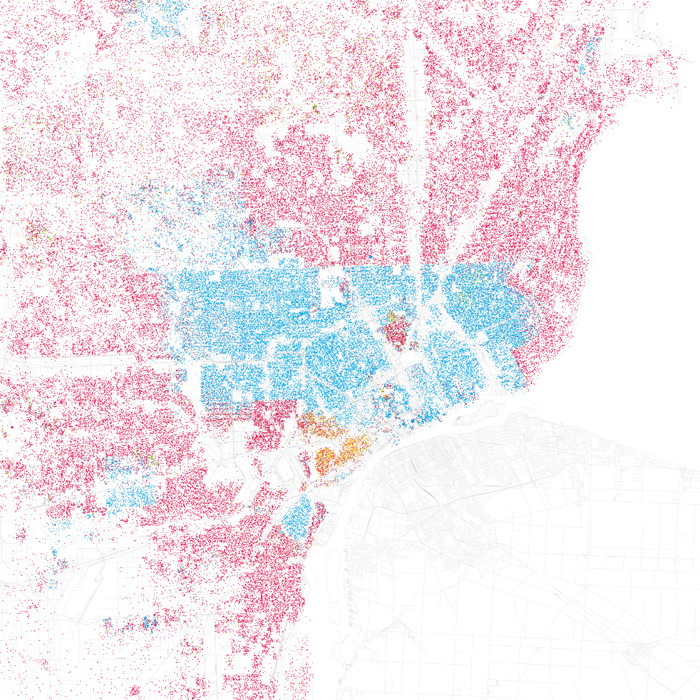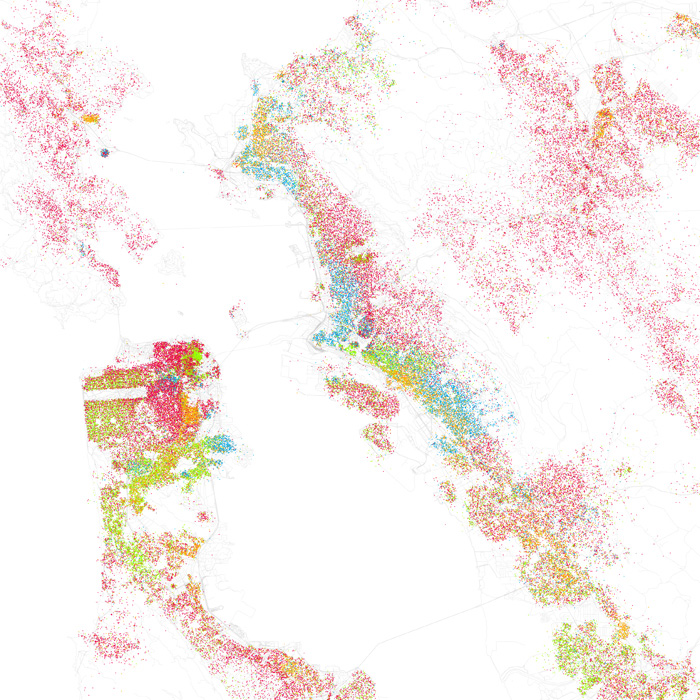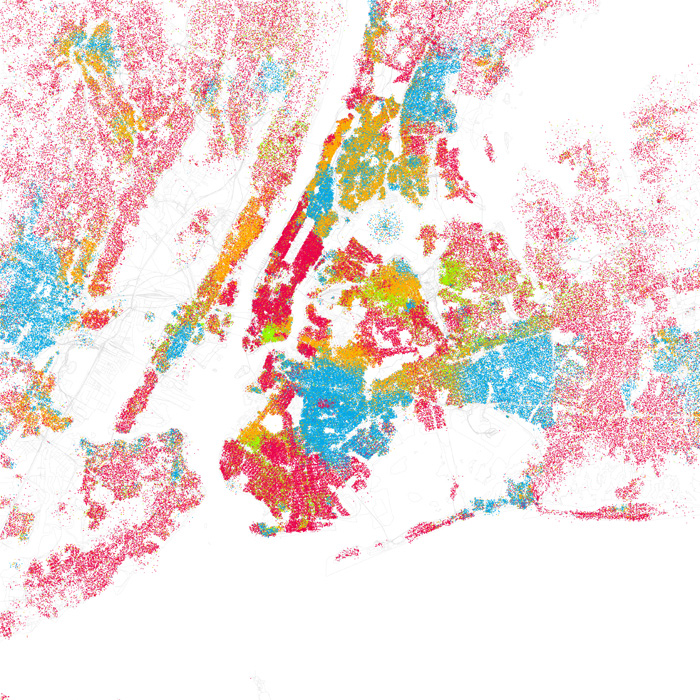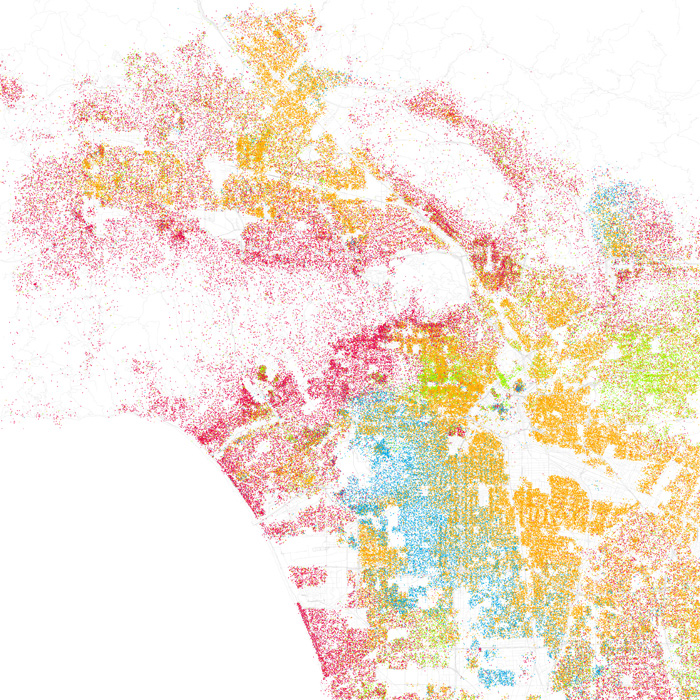Course website for Fall 2010 edition of CSP 19: LGBT Rights in the Era of Obama and Google.
Showing posts with label sophia. Show all posts
Showing posts with label sophia. Show all posts
Monday, December 6, 2010
Final Paper
Here is a link to my final paper!
Sunday, December 5, 2010
Encouraging Gender Roles and Stereotypes
I was looking at the Family Research Council's website today, and I came across their list of why same-sex marriage should not be allowed. Of course every single reason is stupid and false, but I was particularly surprised by the last two.
9. Marriages thrive when spouses specialize in gender-typical roles.
The organization states that "women are happier when their husband earns the lion's share of the household income" and "couples are less likely to divorce when the wife concentrates on childrearing and the husband concentrates on breadwinning." So... basically women are better off being the passive housewife of the 1950's while men should be the hardworking, money earners. Hm, and I thought these ideas were outdated.
10. Women and marriage domesticate men.
The FRC argues that "it is unlikely that homosexual marriage would domesticate men in the way that heterosexual marriage does" and "gay activists who argue that same-sex civil marriage will domesticate gay men are, in all likelihood, clinging to a foolish hope."
Ok, so I never realized that men had to be domesticated. My dog, yes. But I've never considered trying to domesticate a man. But I mean, when you think about it, it's just so clear. I mean, all men are obviously wild savages who must be housebroken by the merciful, naturally tame essence of a woman... or the controlling, manipulative one, depending on which stereotype you interpret from this argument.
And I've never heard a gay activist argue that that same-sex marriage would domesticate gay men. That's just... weird. I think UR da fools, FRC!
Wednesday, December 1, 2010
"Hate under cloak of religion"
Religious groups are often very much against the idea of homosexuality and preach that it's sinful and immoral. But unless they take the same path as the Westboro Baptist Church and hold up disgustingly offensive "God hates fags" signs, no one really considers religious organizations a hate group.
This article addresses the Family Research Council, a large Washington-based group strongly associated with the religious right. The Southern Poverty Law Center, an organization centered around civil rights, has called out the Family Research Council on their hateful preaching reminiscent of those who opposed racial equality for African Americans.
One of the Family Research Council's pamphlets explain the "evils" of homosexuality, with one called "Dark Obsession: The Tragedy and Threat of the Homosexual Lifestyle." Similar to the ridiculous claims from decades ago that African American teenagers would assault and harass white females because they are "unable to control sexual impulses," spokesmen for the Family Research Council have ludicrously stated that children are more vulnerable to molestation in same-sex parent households.
I'm all for the freedom of speech, and if people are going to continue to be nonsensically close-minded and hateful toward specific groups, they have the right to. But these people are pushing for legal action to marginalize the LGBT community based on their own hateful beliefs, and that is unconstitutional. Like the author of the article writes, "... we now recognize [rhetoric used by anti-black equality] as hate speech. It's past time to do the same with rhetoric that denigrates gays and lesbians."
Monday, November 29, 2010
The Risk for Transgender People
I don't understand why people are so adamant about their negative associations with transgendered people. I can see how, if you've lived an isolated life, especially in certain parts of the country, the concept can at first seem unfamiliar and strange, but why continue to harbor anger toward people just because you might've been taught to disapprove?
In October 2010, the National Center for Transgender Equality and the National Gay and Lesbian Task Force released the results of a study which found that 41% of transgender people in the U.S. have made a suicide attempt, 19% say that they have been refused medical services due to being transgender, and 2% report they have been assaulted in a doctor's office.
Obviously, these statistics show that becoming transgender is not an easy decision and there are many risks involved, especially because society typically dictates what a man and a woman should act and look like. The process is expensive, uncomfortable, and stressful. It wouldn't make sense for a person who is completely comfortable with the gender they were born with to undergo such a change, and yet people still continue to claim that such a change is morally wrong.
It just doesn't seem like all that disapproval can be good for someone. They should let go of the anger and just let everyone be happy with who they are or who they want to be.
In October 2010, the National Center for Transgender Equality and the National Gay and Lesbian Task Force released the results of a study which found that 41% of transgender people in the U.S. have made a suicide attempt, 19% say that they have been refused medical services due to being transgender, and 2% report they have been assaulted in a doctor's office.
Obviously, these statistics show that becoming transgender is not an easy decision and there are many risks involved, especially because society typically dictates what a man and a woman should act and look like. The process is expensive, uncomfortable, and stressful. It wouldn't make sense for a person who is completely comfortable with the gender they were born with to undergo such a change, and yet people still continue to claim that such a change is morally wrong.
It just doesn't seem like all that disapproval can be good for someone. They should let go of the anger and just let everyone be happy with who they are or who they want to be.
Monday, November 8, 2010
Hybridity and Intersectionality
I thought this YouTube video was a really good example of both hybridity and intersectionality. Rappers are usually known to be black and male, but this one is female and Caucasian. She exemplifies hybridity by seeming to possess both masculine and feminine traits (she's a feminist rapper), and she demonstrates intersectionality by being both female and gay.
When I first watched the video, I thought it was a little strange at first, just because I'm not used to hearing a female voice when listening to hip hop, but after a few seconds, I started to like it. Plus, the message kind of rocks!
When I first watched the video, I thought it was a little strange at first, just because I'm not used to hearing a female voice when listening to hip hop, but after a few seconds, I started to like it. Plus, the message kind of rocks!
Tuesday, November 2, 2010
What Would You Do?: Gay Bullying
I watched the most recent episode of ABC's What Would You Do? on Hulu, where they addressed the issue of gay bullying. In this show, they set up scenarios in suburban areas (usually New Jersey) and secretly film it to see what passerby will do.
In this episode, they set up a scenario where several teen boys were bullying another teen boy, calling him a fairy, homo, etc. I thought more people would stop to stand up for the boy, but I was surprised at how little people actually attempted to intervene. The ones that did though were touching. :)
Here's the scenario:
In this episode, they set up a scenario where several teen boys were bullying another teen boy, calling him a fairy, homo, etc. I thought more people would stop to stand up for the boy, but I was surprised at how little people actually attempted to intervene. The ones that did though were touching. :)
Here's the scenario:
Wednesday, October 20, 2010
Why Obama isn't acting quicker for LGBT rights
Obama has been under a lot of heat for not carrying out his campaign promises to the LGBT community. According to PolitiFact.com, Obama made five promises about gay and lesbian rights:
1. Push for the passage of the Matthew Shepard Act. (promise kept)
2. Include sexual orientation and gender identity in the Employment Non-Discrimination Act (not yet)
3. Encourage states to treat same-sex couples equally when it comes to family and adoption
4. Repeal "Don't Ask, Don't Tell" (reports as "in the works")
5. Work to repeal the Defense of Marriage Act (not yet)
Out of the five, he's only fully carried out one, and the LGBT community and their supporters are not very happy with him.
This article, though, explains why Obama might be more hesitant to forcefully and enthusiastically support minority rights. It says that in the past, presidents would have faced major consequences for supporting minority rights; they would not be reelected or would lose party seats in Congress. FDR, for example, refused to support anti-lynching laws and anti-poll tax laws because he didn't want to lose support in the South.
In class, we just read about how Clinton made numerous statements of support for the gay community, promising that with him, they'll get the rights they deserve. When he was finally elected into office, though, it took a long time for him to act, and when he did, he compromised with his opposition and upset his gay and ally supporters. After reading the chapter about him in Out of the Past, we learned that he did so because he knew that it was politically impossible for him to fully carry out his promises. Congress was becoming increasingly likely to override his executive order due to the overwhelming opposition.
Obama seems to following in Clinton's footsteps and is deciding that to fully branch out in support of the LGBT community would be too risky.
Thursday, September 30, 2010
What an increasing number of interracial citizens means
An article in the LA Times writes about how the emergence of an increasing interracial population may bring the end of identity politics.
I looked up the term "identity politics" on the Stanford Encyclopedia of Philosophy where it defines it as meaning "a wide range of political activity and theorizing founded in the shared experiences of injustice of members of certain social groups" or, as WiseGeek said in a much simpler way, it is "when members of a specific subgroup unite in order to affect political or social change."
The author writes that the upcoming generation could have as many as 1 in 7 interracial children, or on the western states, as many as 1 in 4. This new generation will "find itself at odds with America's divisive identity politics" and could end these politics by, instead of becoming part of an existing subgroup, finding a different, less divisive way to get involved with issues.
I don't know if interracial people will end identity politics all together, because race isn't the only thing you can identity with and group with others on. There's also gender, sexuality, socioeconomic status, religion, geographic location, etc. I do hope, though, that it will be a beginning to "bypass[ing] labels and embrac[ing] individualism."
The author also makes another point, that people will ask his multiracial kids, "What are you?" wanting to know their specific racial makeup. He writes, "In the age of identity politics, it is not stories but race that matters." I don't know if asking "What are you?" directly correlates to identity politics, though. Some people are just curious. As a biracial person, I have never taken offense to the question, "What are you?" On a side note, some Latino people have assumed that I was also Latino and were very surprised to learn that I have not a drop of Latino blood in me. I don't find that offensive; I find that fun and, in a way, flattering.
The author also writes about choices multiracial people have when "they enter into a world where no choice is clean-cut." I think the great thing about being multi/biracial is that you can choose whatever you want. I went through a very brief time period where I would whine about how I would never be fully accepted into white culture or in Asian culture, but my dad offered the idea that being multiracial meant that you wouldn't awkwardly stand out in any culture. You look different, but not in an obvious way. You could fit in anywhere. I like that idea much better.
I looked up the term "identity politics" on the Stanford Encyclopedia of Philosophy where it defines it as meaning "a wide range of political activity and theorizing founded in the shared experiences of injustice of members of certain social groups" or, as WiseGeek said in a much simpler way, it is "when members of a specific subgroup unite in order to affect political or social change."
The author writes that the upcoming generation could have as many as 1 in 7 interracial children, or on the western states, as many as 1 in 4. This new generation will "find itself at odds with America's divisive identity politics" and could end these politics by, instead of becoming part of an existing subgroup, finding a different, less divisive way to get involved with issues.
I don't know if interracial people will end identity politics all together, because race isn't the only thing you can identity with and group with others on. There's also gender, sexuality, socioeconomic status, religion, geographic location, etc. I do hope, though, that it will be a beginning to "bypass[ing] labels and embrac[ing] individualism."
The author also makes another point, that people will ask his multiracial kids, "What are you?" wanting to know their specific racial makeup. He writes, "In the age of identity politics, it is not stories but race that matters." I don't know if asking "What are you?" directly correlates to identity politics, though. Some people are just curious. As a biracial person, I have never taken offense to the question, "What are you?" On a side note, some Latino people have assumed that I was also Latino and were very surprised to learn that I have not a drop of Latino blood in me. I don't find that offensive; I find that fun and, in a way, flattering.
The author also writes about choices multiracial people have when "they enter into a world where no choice is clean-cut." I think the great thing about being multi/biracial is that you can choose whatever you want. I went through a very brief time period where I would whine about how I would never be fully accepted into white culture or in Asian culture, but my dad offered the idea that being multiracial meant that you wouldn't awkwardly stand out in any culture. You look different, but not in an obvious way. You could fit in anywhere. I like that idea much better.
Monday, September 27, 2010
NAACP leaders reach out to LGBT community
On Friday, we discussed the concept of Leapfrog Paranoia which was defined as the "fear that if you acknowledge another's oppression, your status is reduced, superseded by that group's". I thought a nice exception to this theory is the NAACP's president recent support for the LGBT community.
President Benjamin Jealous said, "The NAACP is opposed to discrimination in all its form. We recognize that many of our members are also members of the LGBT community, and just as the LGBT community counts on us to stand with it for basic civil rights protections, so we count on the LGBT community to stand with us in our unified struggle for the broader civil rights agenda."
Instead of dissociating from each other, the NAACP president has acknowledged the common ground that both groups share. There is no mention of any sort of the "who has it worse?" dispute, as Hancock states is common among minority civil rights groups. She writes, "I call this the additive oppressions argument, and it is easy to see where this question leads - directly to the Oppression Olympics question of, 'Who has it toughest?'"
Unfortunately, some members of NAACP are very much opposed to same-sex marriage, including the Rev. Keith Ratliff Sr. He is a national NAACP board member and has demanded Iowa lawmakers begin the process of amending Iowa's Constitution to keep marriage between a man and a woman.
The NAACP national board has not taken a side on this issue.
President Benjamin Jealous said, "The NAACP is opposed to discrimination in all its form. We recognize that many of our members are also members of the LGBT community, and just as the LGBT community counts on us to stand with it for basic civil rights protections, so we count on the LGBT community to stand with us in our unified struggle for the broader civil rights agenda."
Instead of dissociating from each other, the NAACP president has acknowledged the common ground that both groups share. There is no mention of any sort of the "who has it worse?" dispute, as Hancock states is common among minority civil rights groups. She writes, "I call this the additive oppressions argument, and it is easy to see where this question leads - directly to the Oppression Olympics question of, 'Who has it toughest?'"
Unfortunately, some members of NAACP are very much opposed to same-sex marriage, including the Rev. Keith Ratliff Sr. He is a national NAACP board member and has demanded Iowa lawmakers begin the process of amending Iowa's Constitution to keep marriage between a man and a woman.
The NAACP national board has not taken a side on this issue.
Thursday, September 23, 2010
Cities Divided by Race
I found these images of some of the U.S.'s biggest cities and how they're racially segregated. The U.S. has comes a long way since the racism of the early 20th century and before, but as a nation, it seems that overall, we are still segregated from each other.
One dot = 25 people
Color is based on race:
White = pink
Black = blue
Latino = orange
Asian = green
San Antonio has a majority white and Latino population. While there is still a division between the two, we can see that the two races are still pretty integrated with each other.
(Click for a larger size.)
Washington D.C. has a clear line between white and black, but there are still some areas in the city where colors are blended, marking more racially integrated areas.
Detroit, however, is very obviously segregated, with very little racial integration. According to the website, "the infamous Eight Mile beltway... serves a precise boundary for the city's black and white populations."
It's no surprise that the San Francisco bay area is one of the most racially integrated cities.
New York City, known for its rich cultural communities, is very divided, but according to the website, "the sheer number of people in those areas means that the boundaries become intensely rich areas of cross-cultural ferment."
And our own city of Los Angeles, widely recognized to be very racially and culturally diverse, shows off how the homogenous white race isn't the majority here.
Tuesday, September 21, 2010
Afghan girls pretending to be boys
I read an interesting article in the New York Times about how many Afghan families are fooling society into thinking that they have a son by treating treating their daughters like boys. They are not referred to as son or daughter, but instead "bacha posh" which means "dressed up as a boy."
In Afghan, boys are seen as much more important and are highly prized. Mothers face immense pressure to conceive a male child, and people will pity them if they have only daughters. Mothers who don't want to have another child, like a woman named Azita Raffat, who wanted instead to advance her political career, decided to change her daughter into a son. She introduced the idea of being a boy by saying, "Do you want to ... do more fun things like boys do, like bicycling, soccer, and cricket?"
The gender roles in Afghanistan are much more pronounced and strict than they are in the U.S., and these girls-turned-boys are able to practice "masculine" traits such as athleticism, aggressiveness, and defiance without fear of breaking cultural norms. Mrs. Raffat says of her daughter, "[She has] adopted all the boys' traits very soon ... the attitude, the talking. She has nothing of a girl in her." This of course implies that "girl" traits are submissiveness, obedience, and subdued.
It was interesting to read about how these girls, raised as boys, had to eventually change back as they went through puberty and their bodies changed. They had to start wearing burqas and learn how to socialize with women. The girls interviewed in this article were not particularly happy about changing back. A woman named Shukria Siddiqui was raised a boy until her parents arranged a marriage for her. She refers to her male years as her "best times" because she was able to be more outspoken. The man she married allows her to wear trousers around the house sometimes because he knows it makes her happier (cue for the "aww"). He once tried to beat her, but never tried it again after she hit him back. Retaliation is seen as a masculine trait and is taboo for a woman to exhibit.
Unlike in the United States where defying gender roles is becoming more of the social norm and can have more to do with personal choice and preference, in Afghanistan, your gender identity can make or break your economic welfare. A ten year old girl named Miina dresses like a boy and works to earn money for her family. Being a boy is the only way for her to work, as girls are not allowed to. Having a son also increases the family's status in society, if only temporarily.
To be a male in Afghanistan is to command respect, be able to work and earn money, to have more freedoms. One girl-turned-boy says she would rather be a boy and doesn't want to change back: "People use bad words for girls. They scream at them on the streets. When I see that, I don't want to be a girl. When I am a boy, they don't speak to me like that." She is the same person; it is just her gender that decides how society will treat her.
Pictures here.
In Afghan, boys are seen as much more important and are highly prized. Mothers face immense pressure to conceive a male child, and people will pity them if they have only daughters. Mothers who don't want to have another child, like a woman named Azita Raffat, who wanted instead to advance her political career, decided to change her daughter into a son. She introduced the idea of being a boy by saying, "Do you want to ... do more fun things like boys do, like bicycling, soccer, and cricket?"
The gender roles in Afghanistan are much more pronounced and strict than they are in the U.S., and these girls-turned-boys are able to practice "masculine" traits such as athleticism, aggressiveness, and defiance without fear of breaking cultural norms. Mrs. Raffat says of her daughter, "[She has] adopted all the boys' traits very soon ... the attitude, the talking. She has nothing of a girl in her." This of course implies that "girl" traits are submissiveness, obedience, and subdued.
It was interesting to read about how these girls, raised as boys, had to eventually change back as they went through puberty and their bodies changed. They had to start wearing burqas and learn how to socialize with women. The girls interviewed in this article were not particularly happy about changing back. A woman named Shukria Siddiqui was raised a boy until her parents arranged a marriage for her. She refers to her male years as her "best times" because she was able to be more outspoken. The man she married allows her to wear trousers around the house sometimes because he knows it makes her happier (cue for the "aww"). He once tried to beat her, but never tried it again after she hit him back. Retaliation is seen as a masculine trait and is taboo for a woman to exhibit.
Unlike in the United States where defying gender roles is becoming more of the social norm and can have more to do with personal choice and preference, in Afghanistan, your gender identity can make or break your economic welfare. A ten year old girl named Miina dresses like a boy and works to earn money for her family. Being a boy is the only way for her to work, as girls are not allowed to. Having a son also increases the family's status in society, if only temporarily.
To be a male in Afghanistan is to command respect, be able to work and earn money, to have more freedoms. One girl-turned-boy says she would rather be a boy and doesn't want to change back: "People use bad words for girls. They scream at them on the streets. When I see that, I don't want to be a girl. When I am a boy, they don't speak to me like that." She is the same person; it is just her gender that decides how society will treat her.
Pictures here.
Thursday, September 9, 2010
DADT Ruled Unconstitutional!
Don't Ask, Don't Tell, the law that forbids the military from asking service members their sexual orientation, but forcing discharge if one is found to be gay or to have engaged in homosexual activity, has been ruled unconstitutional by U.S. District Judge Virginia Phillips! Phillips stated that the policy has a "direct and deleterious effect" on the military services, and that she will issue a nationwide halt on the policy. She will write an injunction which the federal government will have a week to respond to.
Obama has repeatedly assured that he would work toward removal of the ban, and earlier this year, the House voted to repeal the policy. The Senate has yet to review it, but today marked another step closer to getting rid of the discriminatory policy! :)
(It's also nice that the judge is from California, after another California judge recently ruled Prop 8 unconstitutional. Making up for California's 2008 election mistake? hehe)
Obama has repeatedly assured that he would work toward removal of the ban, and earlier this year, the House voted to repeal the policy. The Senate has yet to review it, but today marked another step closer to getting rid of the discriminatory policy! :)
(It's also nice that the judge is from California, after another California judge recently ruled Prop 8 unconstitutional. Making up for California's 2008 election mistake? hehe)
Realizing Race is a Social Construct
For the first page or two of this paper, I scratched my head every time the author said that people didn’t know how to truly define race. Isn’t it obvious? Black, white, Asian... how else can you define it? When he did finally explain what race actually is by writing that it is “an ongoing, contradictory, self-reinforcing, plastic process subject to the macro forces of social and political struggle and the micro effects of daily decisions,” I wrote a big, bold, frustrated “What?” next to the sentence. In my mind, it was obvious that we were all divided by race. Looking around in LA, you can see how divided the races can be, such as the mostly Latino community of Highland Park and the predominantly Asian city of San Marino.
It wasn’t until I read, “There are no genetic characteristics possessed by all Blacks but not by non-Blacks,” that it finally clicked in my head. Duh! Obviously our DNA and genes are not necessarily specific to and determined by our ancestral backgrounds and the color of our skin. Society has conditioned us to believe that our behavior, thoughts, actions, and beliefs are linked to our race. But the divisions that I had been assuming were about race have nothing to do with race at all; it’s about culture. For example, it’s not because you’re of “Korean/Asian race” that you are familiar with kimchi and watch dramatic Korean dramas. It’s because you were raised with Korean culture in the home. The thing that can and does separate some of us is culture, not race. Of course, there are other things that can separate us, too, like our gender, sexual orientation, class, etc., but those are also all different types of cultures. And what is culture but a construct of society?
Labels:
culture,
gender,
race,
social constructs,
sophia
Subscribe to:
Posts (Atom)


.jpg)
